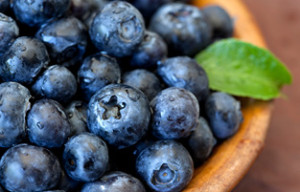
Discover the best foods to stock up on for better health this winter. Fight off the flu this winter by adding any of these immune-boosting superfoods to your diet.
1.Carrots
This root vegetable contains high amounts of beta carotene which the body converts into vitamin A. Vitamin A is a key nutrient in immune function, helping to protect against infection and reduce the risk and duration of respiratory illness by keeping our lungs healthy. Carrots most commonly orange in colour, are also available in purple and red varieties. Tip: beta carotene is a fat soluble vitamin meaning a small amount of fat is required for it to be absorbed. Do this by adding a drizzle of olive oil to roasted carrots or a dollop of organic butter to carrot mash.
2.Wheat germ
Wheat germ is the small yet nutritionally dense component of the wheat kernel. It’s rich in B vitamins, iron, zinc and vitamin E, an important antioxidant that supports the body’s immune response. Fresh wheat germ has a nutty flavour and can be used in baking breads, muffins, casseroles or sprinkled on salads or cereals. Adding 2 tablespoons of wheat germ to your morning porridge provides around 7.5 milligrams of vitamin E or 50 per cent of the recommended daily intake. Wheat germ oil is more concentrated. One tablespoon contains 20.3 milligrams of vitamin E.
3.Garlic
Garlic has been used for thousands of years in the treatment of illness and disease. The University of Maryland Medical Center in the US recommends eating 2 to 4 whole cloves of raw garlic per day as a natural health supplement. However it’s believed consuming between 1 to 2 cloves of garlic daily offers the same benefits to fight off a cold. For those who don’t like the taste or smell of raw garlic, an odorless supplement can be taken several times a day.
4.Natural yogurt
Natural plain yogurt contains probiotics, the friendly bacteria that are essential for good gut health. Probiotics boost immunity by protecting against viruses that enter via the digestive tract. For a healthy dose of probiotics add yogurt to your cereal in the morning or mix warm berries, cinnamon and yogurt together for dessert. Other foods which also contain probiotics include fermented miso, tempeh and kefir, a fermented milk drink.
5.Fennel
This licorice tasting winter vegetable offers more than just a unique tang. Fennel is low in calories yet high in the phytonutrient anethole, which may help boost the immune response. Fennel, like celery is a member of the parsley plant family however compared to its cousins, it contains much higher levels of vitamin C. Fennel can be eaten raw in salads or cooked in a stir fry or baked with a roast dinner.
6.Tangelo
A cross between a tangerine and a pomelo, the tangelo is one of winter’s best citrus fruits. Similar to oranges, tangelos contain high levels of vitamin C. Research shows several cells of the immune system require vitamin C to perform their task, especially phagocytes and T-cells. Therefore a vitamin C deficiency may result in a reduced resistance against certain pathogens. Just one tangelo per day provides 100 per cent of the recommended dietary intake of vitamin C.
7.Salmon
Research shows 40 per cent of Australians will be deficient in vitamin D at the end of winter. Also known as the sunshine vitamin, vitamin D has important functions within the body including immune system regulation. Salmon is one of the few dietary sources of vitamin D. The recommended intake of vitamin D is 400IU or 10 micrograms per day. This would be equivalent to short amounts (10 to 15minutes) of daily sun exposure or a single 120 gram serve of salmon.
8.Beetroot
Beetroot is packed with beneficial phytochemicals and antioxidants which protect the immune system by fighting off destructive free radicals, molecules which harm healthy cells and their DNA. This bright, sweet root vegetable can be eaten baked, steamed, pickled or blitzed through soups. Tip: don’t discard the green leafy tops. They offer high nutrient value providing vitamin C, beta carotene, calcium and iron.
9.Eggs
Once considered off limits due to their cholesterol content, eggs are back on our good list and with good reason. Eggs provide an excellent source of protein, B vitamins, vitamins A, D and zinc. Protein is essential in supporting a healthy immune system. The body used protein as fuel to make antibodies that attack foreign invaders and prevent against infection. The Australian Heart Foundation states you can enjoy up to six eggs each week as part of a healthy balanced diet.
10.Dark chocolate
Cacao-based dark chocolate is one of the best natural sources of antioxidants, iron, magnesium and zinc. Zinc, an important trace mineral, is important for immune function. Adults need around 8-14 milligrams of zinc per day. Unsweetened cacao provides around 9.6 milligrams of zinc per 100g, compared to 2.3 milligrams per 100g serve of standard milk chocolate. Tip: if you can’t find pure cacao make the switch to dark chocolate that’s to 70-85 per cent cacao; the higher percentage indicates a higher amount of cacao in the product.
Check out our Kale, quinoa patties recipe
Teresa Boyce is a registered nutritionist.

